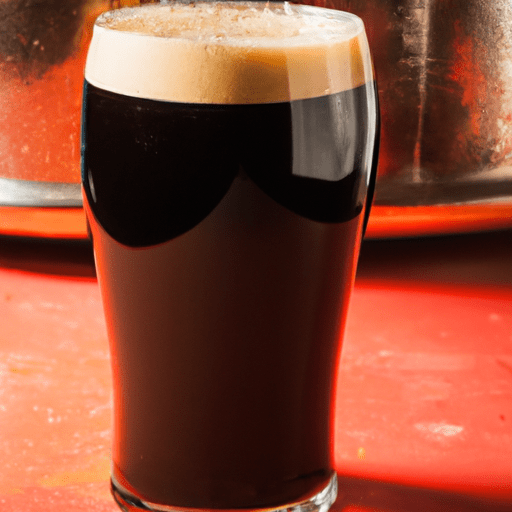The Delightful World of Rye Beer: Exploring Flavor, Uses, and More
When it comes to exploring the vast realm of craft beers, one variety that stands out for its unique characteristics is rye beer. Combining the earthy flavors of rye with the delightful complexities of beer, this beverage is a true gem for both beer enthusiasts and culinary adventurers alike. Let’s delve into the fascinating realm of rye beer, uncovering its taste, common uses in cooking, and nutritional value, while uncovering some intriguing history and facts along the way.
A Flavorful Encounter
Rye beer offers a distinct flavor profile that sets it apart from other brews. Combining the sweet and spicy notes of rye with the familiar bitterness of beer, it creates a harmonious balance on the palate. Expect a rich, malty taste with hints of caramel, bread, and a subtle spiciness reminiscent of black pepper. The intricate blend of flavors makes rye beer an appealing choice for those seeking something a little different yet satisfying.
Culinary Versatility
Beyond its delicious sippability, rye beer holds immense potential in the culinary world. Whether you’re a seasoned chef or a home cook looking to elevate your dishes, incorporating rye beer can add a depth of flavor to various recipes. From hearty stews and bread to sauces and marinades, this versatile libation offers a unique twist to classic dishes.
Rye beer’s distinct flavors pair exceptionally well with smoked meats, root vegetables, and robust cheeses. When used as an ingredient in cooking, it can infuse a rich, malty essence that complements the savory elements of a dish. Moreover, the effervescence of rye beer can impart a lightness to batters, resulting in delectably crispy fried foods.
Nutritional Benefits
Apart from its enticing taste and culinary potential, rye beer also offers some nutritional benefits. Rye itself is a wholesome grain known for its high fiber content, which aids in digestion and promotes a healthy gut. When incorporated into beer, this nutritional profile extends to the beverage as well.
Additionally, rye beer is often brewed using a combination of malted barley and rye grains. These grains are packed with essential vitamins and minerals, including B vitamins, iron, magnesium, and phosphorus. While moderation is key due to the alcoholic content, savoring a glass of rye beer can be a pleasant way to indulge while enjoying some nutritional perks.
A Glimpse into History
The roots of rye beer can be traced back centuries, where it held a prominent place in the brewing traditions of Europe. German brewers, in particular, are renowned for their mastery of this style. Rye beer was highly valued for its ability to withstand colder temperatures during fermentation, making it an ideal brew for the winter months.
During the Middle Ages, rye beer gained further popularity and even played a role in monastic brewing practices. With its distinct flavors and nourishing qualities, it became a staple for sustenance during fasting periods. This historical significance only adds to the allure of this unique beverage.
Fascinating Facts
To top off our exploration of rye beer, here are a few remarkable facts to pique your interest:
- Rye beer is often characterized by its cloudy appearance, owing to the higher protein content of rye.
- While rye beer is commonly brewed using a mix of rye and malted barley, some variations exclusively use rye grains.
- The spiciness of rye beer can vary depending on the amount of rye used and the brewing process, offering a range of experiences for beer enthusiasts.
- Rye beer can be enjoyed at different temperatures. While some prefer it chilled, allowing the flavors to shine, others savor it closer to room temperature to appreciate its complexity.
Cheers to Rye Beer!
With its captivating flavor profile, culinary versatility, and historical significance, rye beer is a truly exceptional brew worth exploring. Whether savored on its own or incorporated into cooking, this libation offers a delightful journey for your taste buds. So, why not raise a glass and embark on the delightful world of rye beer?
Origin of Rye Beer:
Rye beer, also known as roggenbier, is a type of beer that is brewed using rye grain as its primary ingredient. It originated in Germany and has a long history in Bavaria, where it was traditionally brewed using a combination of rye and barley.
Common Uses:
Rye beer is typically enjoyed as a beverage, served cold in a glass. It is commonly found in Germany and other countries where it is brewed.
Nutritional Benefits:
Rye beer contains several nutritional components. It is primarily a source of carbohydrates, providing energy to the body. Rye grain also contains dietary fiber, which aids in digestion. Additionally, rye beer can contain some vitamins and minerals naturally present in the grains.
Unique Properties and Historical Significance:
Rye beer is distinct from traditional beer made with barley due to its high proportion of rye grain in the brewing process. This gives it a distinct taste and aroma, often described as spicy or peppery.
Historically, rye beer played an important role in German brewing traditions. It was a popular beverage during medieval times and was used as a staple drink for many centuries. Rye was widely cultivated in Germany, making it a readily available grain for brewing.
Today, rye beer has become less common compared to other beer styles, but it still holds cultural significance in regions where it has a historical presence. It continues to be brewed and enjoyed by beer enthusiasts who appreciate its unique flavor profile.




Use the share button below if you liked it.
It makes me smile, when I see it.